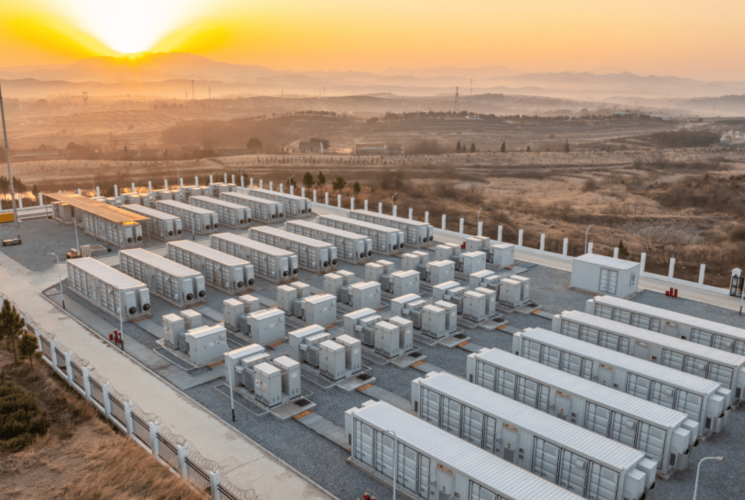How The UK Grid Connections Reform Is Helping Businesses Transition to Renewable Energy Faster

In January 2025, the United Kingdom initiated a significant overhaul of its energy infrastructure through the Grid Connections Reform. This reform aims to address longstanding inefficiencies in the national grid connection process, which have impeded the swift deployment of renewable energy projects. With the UK targeting a net-zero power system by 2035, streamlining grid connections is pivotal for a seamless transition to a sustainable energy sector.
Understanding the Grid Connections Reform
Prior to the reform, developers faced substantial delays, sometimes extending up to 15 years, when attempting to connect new energy projects to the grid. This was largely due to a first-come, first-served approach that resulted in a backlog of speculative applications, hindering viable projects ready for deployment. In response, the National Energy System Operator (NESO), in collaboration with regulatory bodies like Ofgem, implemented a temporary pause on new grid connection applications starting January 29, 2025. This pause facilitated a redesign of the system to manage future applications more efficiently.
The reformed approach shifts from "first come, first served" to "first ready, first connected," prioritising projects that have achieved key developmental and financial milestones. By enforcing stricter criteria, NESO aims to clear the backlog, accelerate connections, and support the UK’s clean energy objectives.
Objectives of the Reform
The reform focuses on several key objectives:
- Prioritising Viable Projects: Ensuring that projects ready for deployment receive priority access to grid connections.
- Reducing Speculative Applications: Discouraging non-viable projects from congesting the queue through new application requirements.
- Accelerating Renewable Energy Integration: Helping faster adoption of wind, solar, and other renewable energy sources through a more efficient grid connection process.
- Improving Grid Infrastructure: Encouraging investment in grid infrastructure to support the increasing demand for electricity from renewable sources and heavy industry.
- Enhancing Energy Security: Optimising energy project connections to promote a stable, reliable, and sustainable power network in the UK.
Impact on Industry and Businesses
The Grid Connections Reform has had far-reaching consequences across different sectors, bringing both benefits and challenges to various stakeholders within the UK’s energy landscape.
Renewable Energy Developers
The reform has been largely welcomed by companies developing solar, wind, and battery storage projects. Historically, many renewable projects faced delays of a decade or more, making effective planning and investment challenging. By prioritising projects with secured planning permissions and financial backing, the reform ensures that serious developers no longer have to compete with speculative applicants.
However, concerns persist within the solar energy sector regarding potential regional restrictions. Industry leaders worry that new policies might limit the number of solar projects in specific areas due to grid constraints or land-use policies, potentially hindering the UK's broader solar expansion efforts. Additionally, developers must now meet stricter milestones to retain their place in the queue, increasing pressure to secure funding and approvals promptly.
Data Centres and Tech Industry
The UK has experienced a surge in data centre construction, driven by the increasing demand for cloud services, artificial intelligence, and digital infrastructure. These facilities require large-scale, consistent electricity supplies. With the new grid connection policies in place, data centre operators now face longer wait times for approvals, which could delay new developments and escalate operational costs.
Some experts suggest that the government may need to introduce a separate prioritisation process for critical infrastructure, such as data centres, to ensure that the UK's digital economy is not adversely affected by energy connection bottlenecks. To mitigate the consequences of this, the government has published the AI Opportunities Action Plan to ensure that demands for these projects are still met.
Energy Storage and Grid Flexibility Providers
The reform presents significant opportunities for the energy storage sector. The UK's transition to renewable energy needs storage solutions, such as large-scale battery projects, to manage supply fluctuations.
Previously, many energy storage projects were stalled in grid connection queues, unable to contribute to grid stability. With the reform's focus on prioritising essential projects, battery storage providers now have a better chance of connecting to the grid more swiftly. This development supports renewable energy integration, enhances grid reliability, and reduces reliance on fossil fuels during peak demand periods.
Industry Response and Policy Adjustments
Since the reform's announcement, various industry groups have lobbied for further adjustments. Heavy industry representatives have called for special provisions to ensure manufacturing hubs receive prompt grid access. Data centre operators have urged policymakers to consider energy allocation frameworks that prioritise digital infrastructure, recognising its economic importance.
Additionally, some businesses are investing in private grid infrastructure, microgrids, and direct power purchase agreements (PPAs) with renewable energy providers to circumvent grid connection challenges. These strategies highlight the evolving nature of energy procurement in the UK's transitioning power landscape.
Looking Ahead: The Future of UK Energy Infrastructure
The Grid Connections Reform marks a pivotal turning point for the UK's energy sector. While it addresses longstanding issues in grid connection delays, its implementation will require continuous monitoring and adjustments to ensure that all sectors—renewables, heavy industry, data centres, and local communities—benefit from the changes.
As the UK progresses toward its net-zero goals, further investments in grid modernisation, digital infrastructure, and decentralised energy systems will be necessary. Policymakers must balance the urgency of renewable energy deployment with the energy needs of industries and businesses, ensuring that the transition to a cleaner grid is both effective and fair.
One thing is certain, the way businesses and industries connect to the UK grid has changed fundamentally, and the impact of these reforms will continue to drive the transition towards clean energy.
At Climate17, we specialise in recruiting top talent in renewable energy and sustainability globally, playing a leading role in the growth of innovative fields. Our deep understanding of the industry and comprehensive approach allows us to source and place professionals who are not only skilled and aligned with the unique requirements of specific projects, but also passionate about driving sustainable change.
If you would like guidance in navigating this industry, we would love to assist! Click here to find out more about our expertise in the UK renewable energy market and meet our lovely team of expert recruiters.
Recent news and views
How Storage Retrofits Are Changing Project Development
Discover how energy storage retrofits are reshaping renewable project development, from design and interconnection to revenue models, risk management, and long-term asset value.

How to Build A Development Team in the USA
Build a strong development team with the right skills, culture, and strategy. Learn how US renewable recruitment works and how to attract, hire, and retain top talent in a competitive market.

Sustainability in Transition: A Changing Market, a Crowded Talent Pool, and the Value of Specialist Recruitment
Over the past 12 months, the sustainability market has entered a new era. The job market surrounding it has become more complex, competitive and in many cases, challenging to navigate for both employers and candidates.

How Storage Retrofits Are Changing Project Development
Discover how energy storage retrofits are reshaping renewable project development, from design and interconnection to revenue models, risk management, and long-term asset value.

How to Build A Development Team in the USA
Build a strong development team with the right skills, culture, and strategy. Learn how US renewable recruitment works and how to attract, hire, and retain top talent in a competitive market.

Sustainability in Transition: A Changing Market, a Crowded Talent Pool, and the Value of Specialist Recruitment
Over the past 12 months, the sustainability market has entered a new era. The job market surrounding it has become more complex, competitive and in many cases, challenging to navigate for both employers and candidates.

Sign up to our newsletter
Jobs, insights, resources and more. A monthly update, straight to your inbox.





